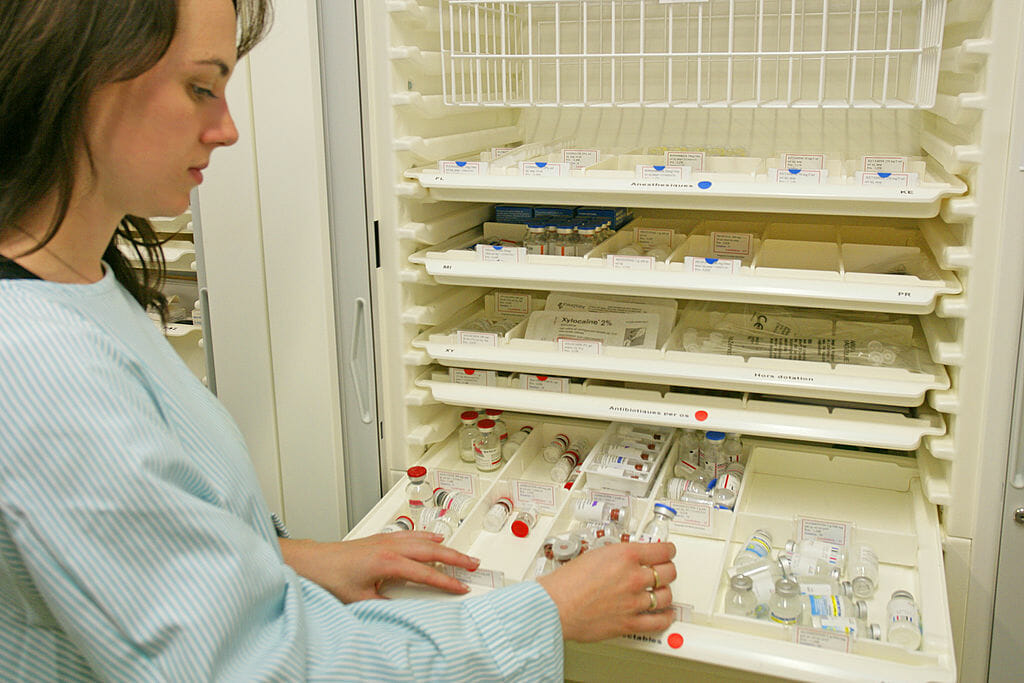The American Society of Clinical Oncology (ASCO) has released guidelines on how to treat patients amid current cancer drug shortages. The guidelines were published in JCO Oncology Practice.
Cancer drug shortages in the United States have “reached unprecedented levels,” according to the guideline authors.
With this in mind, ASCO convened an advisory group of 44 experts to draft general principles on managing patient care during cancer drug shortages. The group also split into subgroups to address disease-specific guidance.
The advisory group’s general recommendations include:
- Do not order an agent with limited supply if an alternative treatment with comparable efficacy and safety is available.
- When clinically acceptable, increase the interval between cycles and/or reduce the total treatment dose of the agent in limited supply.
- Avoid using or minimize the use of a limited agent in recurrent cancers that are resistant to that agent.
- Minimize waste of limited agents by optimizing vial size, rounding doses, and using multiuse vials.
- If a particular agent is unavailable, use an evidence-based alternative regimen, obtaining a second opinion if necessary.
- Institutions should establish multidisciplinary committees to communicate internal policies on drug utilization.
- Providers should offer counseling referrals for patients who are feeling distress about drug shortages.
- Institutions should offer support services for clinicians who are feeling distress.
The guidelines also include disease-specific treatment recommendations related to drugs in short supply.
For example, in patients with early-stage HER2-positive breast cancer, combination treatment with docetaxel, carboplatin, trastuzumab, and pertuzumab is recommended as neoadjuvant and adjuvant therapy. The guidelines recommend that, if carboplatin is in short supply, these patients can receive the drug at an area under the curve of 5.
If carboplatin is unavailable, these patients may receive doxorubicin and cyclophosphamide plus paclitaxel, trastuzumab, and pertuzumab. Simply eliminating carboplatin and treating patients with docetaxel, trastuzumab, and pertuzumab is also an option, as “data from the metastatic setting offers evidence that carboplatin does not add a significant benefit,” the guideline authors wrote.
However, for some cancers, non-platinum regimens are considered inferior, and no suitable alternatives exist. In these cases, the advisory group recommends that patients to travel to an area where the appropriate treatment is available.
“While it is recognized that this strategy may cause additional financial toxicity, hardship, and distress, to optimize patient outcomes, it is encouraged if feasible,” the authors wrote.
For patients enrolled in clinical trials, the advisory group suggests that providers contact the lead investigator for guidance on maintaining compliance with study protocols.
“Shortages will endure until the pharmaceutical supply chain is strengthened and investment in quality production of generic injectable drugs occurs,” the authors wrote.
Up-to-date information on cancer drug shortages is available at asco.org/drug-shortages.
Disclosures: Some study authors declared affiliations with biotech, pharmaceutical, and/or device companies. Please see the original reference for a full list of disclosures.
Reference
Santos ES, Oliver TK, Lacchetti C, et al. Drug shortages in oncology: ASCO clinical guidance for alternative treatments. J Oncol Pract. Published online November 14, 2023. doi:10.1200/OP.23.00545
This article originally appeared on Cancer Therapy Advisor
